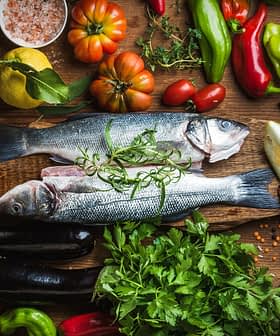Olive Oil-Enriched Diet During Pregnancy Can Benefit the Unborn Through Adulthood
A study conducted by researchers from UFSM and the University of Milan found that a diet enriched with olive oil during the perinatal period can prevent oxidative damage and improve the expression of protective neurotrophins in the adult brain, leading to positive effects on brain development and cognitive function. The study showed that rats fed an olive oil-enriched diet had lower brain lipid peroxidation, higher levels of protective molecules in the brain, and increased resistance to negative environmental stresses, suggesting the potential benefits of a diet rich in monounsaturated fats during pregnancy and lactation.
A recent study has shown that a diet rich in olive oil has a positive effect on the development of the unborn child and may also affect her adult life.
“During the gestation, there is a great incorporation of fatty acids into the fetal brain, in order to maintain the adequate development,” explained one of the authors of the study, Prof. Marilise Escobar Burger. “Since olive oil is consumed in the Mediterranean diet with great results, the idea was that the olive oil, with a favorable fatty acids profile, could be good as well in the prenatal period.”
The joint study was conducted by researchers from the Department of Physiology and Pharmacology of the Federal University of Santa Maria (UFSM) and from the Department of Pharmacological and Biomolecular Sciences of the University of Milan (DiSFeB).
Olive oil during perinatal period seems to be able to prevent oxidative damage and improve the expression of protective neurotrophins in the adult brain.
The researchers evaluated the influence of different diets on rodent pups: a group of female rats received a diet enriched with 20 percent olive oil (OOED) and one group was subjected to a standard diet (CD). They monitored their pups at various times — pregnancy, lactation, and after weaning until the pups’ adulthood — and measured oxidative and molecular brain parameters and weight during their lives, achieving very positive results for levels of prefrontal cortex and hippocampus.
At adulthood, animals in the group OOED showed less brain lipid peroxidation and higher levels of glutathione sulfhydryl groups in the prefrontal cortex and lower brain levels of reactive species in the hippocampus.
Interestingly, the group of animals whose diet was changed from a CD to OOED 21 days after birth showed a greater weight than the group that remained the same original diet (OOED) to adulthood.
It was also interesting that the consumption of OOED during pregnancy and lactation significantly increased the prefrontal cortex expression of trophic molecules that play an important role in neuronal plasticity and cognitive function.
“The new fact about this study is that olive oil diet during perinatal period seems to be able to prevent oxidative damage and improve the expression of protective neurotrophins in the adult brain,” researcher Camila Simonetti Pase (UFSM) explained. “The neurotrophins evaluated in our work (BDNF and FGF‑2),” added Verônica Tironi Dias, are related to cellular survival, plasticity and protection from neurodegenerative and psychiatric diseases.”
The idea of the study and the joint collaboration started when Dr. Angélica Martelli Teixeira, who used to work with fatty acids in Brazil, got in touch with the Italian researchers of the University of Milan during an exchange program in Italy for her PhD.
Marco Andrea Riva works in a laboratory dedicated to psychiatric disorders and factors that may affect the risk of developing them in the pre- and perinatal period. “There is a clear evidence that exposure to stress makes the individual more vulnerable and more susceptible to develop diseases, such as depression or schizophrenia, later in life especially if they are exposed to stressful events during early life. Different factors can affect brain structure and function, not only those related to the environment but also nutritional elements,” he explained.
The study adds to a body of research that show how diets rich or poor in fats or in sugar may have effects on the mechanisms of brain function and functional recovery after traumatic injuries.
“This research supports the evidence that a diet rich in monounsaturated fats, already during the prenatal period, make the brain more plastic, more dynamic and therefore, probably, more resistant to any negative environmental stresses in adult life,” Prof. Riva concluded.
The results open a line of pioneering research on feeding and adjuvant therapeutic strategies and on the potential of healthy eating habits to prevent neonatal conditions and their influence on adult life.









